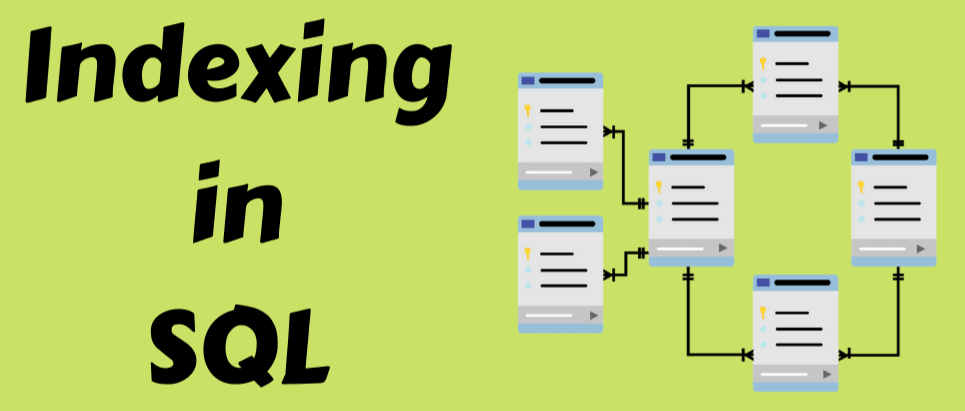SQL indexes
SQL indexes are database objects that are used to improve the performance of database queries. They provide a way to quickly locate data in a table by creating a reference to the data based on one or more columns.
When a SQL query is executed, the database engine uses the index to quickly locate the rows that match the criteria specified in the query. This is done by searching the index rather than scanning the entire table, which can be a time-consuming process, especially for large tables.
Indexes can be created on one or more columns of a table and can be of different types, such as clustered, non-clustered, unique, and composite. The choice of index type depends on the specific needs of the application and the characteristics of the data.
Creating indexes on frequently queried columns can significantly improve the performance of SQL queries, especially for large datasets. However, it's important to keep in mind that indexes also have some overhead, such as increased storage and maintenance costs, so they should be used judiciously and only when needed.
CREATE INDEX index_name ON table_name;
-- Single-Column Indexes:
CREATE INDEX index_name
ON table_name (column_name);
-- Unique Indexes:
CREATE UNIQUE INDEX index_name
ON table_name (column_name);
-- Composite Indexes:
CREATE INDEX index_name
ON table_name (column1, column2);
A single-column index is one that is created based on only one table column. Unique indexes are used not only for performance, but also for data integrity. A unique index does not allow any duplicate values to be inserted into the table. A composite index is an index on two or more columns of a table. Whether to create a single-column index or a composite index, take into consideration the column(s) that you may use very frequently in a query's WHERE clause as filter conditions.
While SQL indexes can improve the performance of database queries, there are some situations in which using them might not be the best approach. Here are some scenarios where SQL column indexes should be avoided:
- When the table is small: For small tables, scanning the entire table might actually be faster than using an index. In this case, the overhead of maintaining an index might outweigh the benefits of using one.
- When the table is frequently updated: Creating indexes on a table can slow down insert, update, and delete operations. This is because every time a row is inserted, updated, or deleted, the indexes must be updated as well. If the table is frequently updated, the cost of maintaining the indexes might outweigh the benefits of using them.
- When the indexed column has low selectivity: If an indexed column has low selectivity, the index might not be very effective. Selectivity refers to the number of distinct values in the column compared to the total number of rows in the table. If the column has a low number of distinct values, the index might not reduce the number of rows that need to be scanned, which can result in slower query performance.
- When the query needs to retrieve a large number of rows: If a query needs to retrieve a large number of rows, using an index might not be the most efficient approach. In this case, scanning the entire table might be faster than using an index to retrieve each row individually.


Комментарии
Отправить комментарий